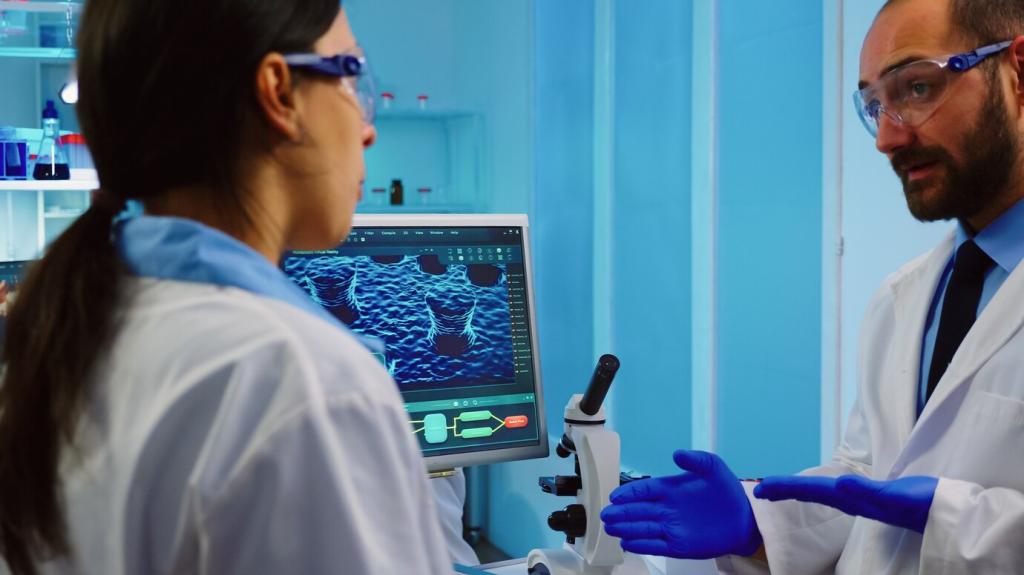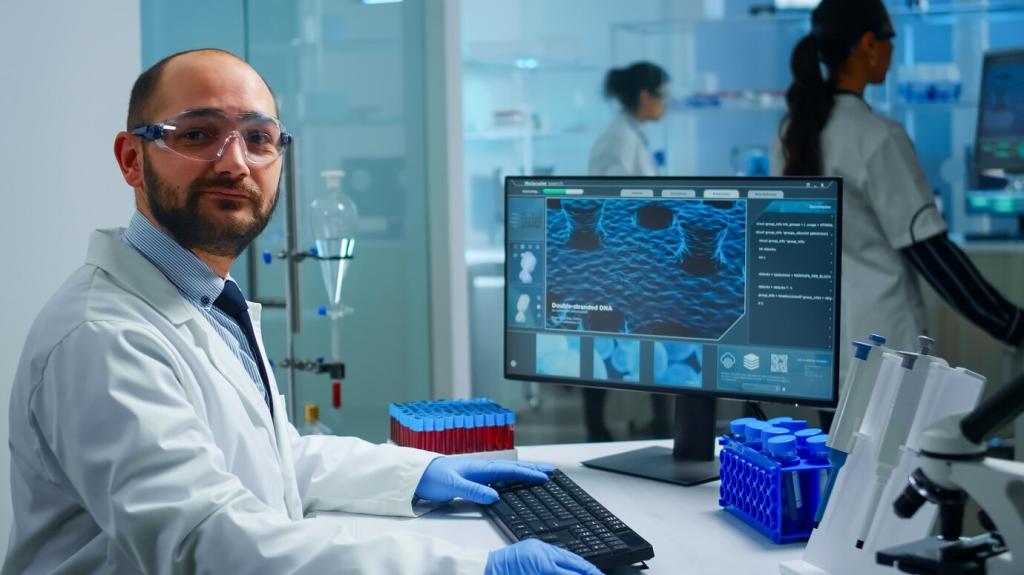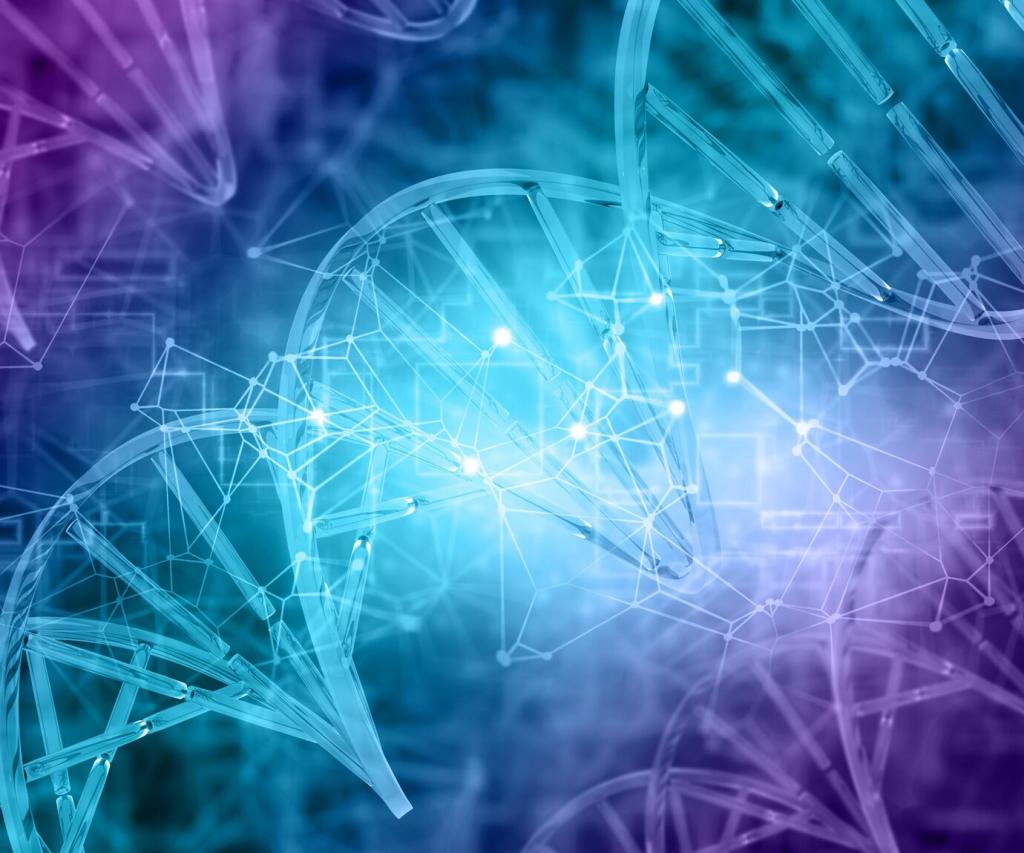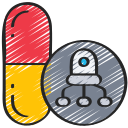
AI-Driven Personalized Medicine: Innovations and Impacts
AI-driven personalized medicine is revolutionizing the healthcare landscape by tailoring treatments and interventions to individual patients. Harnessing advanced algorithms and vast datasets, artificial intelligence (AI) enables clinicians to predict disease, customize therapies, and improve patient outcomes. This paradigm shift from a one-size-fits-all approach to personalized care is transforming diagnosis, treatment, and patient management, promising to enhance quality of life and optimize healthcare resources. As AI continues to integrate into medical practice, it opens new frontiers in disease prevention, drug development, and ethical considerations, shaping the future of medicine in unprecedented ways.
Previous
Next
Transforming Diagnostics with AI
Automated imaging analysis through AI enables rapid and highly accurate interpretation of radiological scans such as X-rays, MRIs, and CTs. This technology can identify minute abnormalities and patterns often missed by the human eye, leading to earlier diagnosis of conditions like cancer, neurological disorders, and cardiovascular disease. For patients, this means less waiting time, faster initiation of treatment, and a significant reduction in diagnostic errors. Moreover, it alleviates the workload for radiologists, allowing them to focus on more complex cases and patient interaction.
In cancer treatment, AI-powered precision oncology identifies unique tumor markers and matches them with the most effective targeted therapies. These systems analyze data from clinical trials, genetic sequencing, and previous patient outcomes to select drugs that are best suited to each individual’s tumor profile. The result is a more effective, less toxic treatment plan that can drastically improve survival rates and minimize adverse effects. This personalized approach represents a major departure from traditional protocols, which often rely on standard chemotherapies with variable efficacy.

Virtual Screening of Compounds
AI-driven platforms facilitate the virtual screening of vast libraries of chemical compounds, predicting which candidates are most likely to become successful drugs. These algorithms analyze molecular properties and simulate biological interactions, drastically reducing the need for costly and time-consuming laboratory experiments. This not only narrows down the list of promising compounds but also shortens the overall timeline for drug discovery, increasing the likelihood of finding innovative treatments that can be tailored to specific patient groups or rare conditions.
Personalized Clinical Trial Design
By analyzing electronic health records and genetic information, AI can identify patients who are most likely to benefit from specific investigational therapies. This individualized approach improves the efficacy of clinical trials by ensuring better patient stratification and more relevant endpoints. Adaptive trial designs powered by AI also enable real-time modifications based on interim data, increasing trial success rates and reducing costs. As a result, clinical research becomes more efficient and patient-centric, speeding up access to groundbreaking therapies.
Predicting Drug Safety and Efficacy
Advanced AI models analyze preclinical and clinical data to predict how drugs will perform in diverse populations. Machine learning techniques assess patterns that may indicate potential adverse effects or suboptimal efficacy, enabling earlier interventions and improved study designs. These predictive capabilities allow pharmaceutical companies and regulators to make evidence-based decisions, reducing the likelihood of failed trials and market withdrawals. Ultimately, AI’s predictive power enhances drug safety, ensuring therapies are better suited to the unique profiles of future patients.
AI in Remote Patient Monitoring
Wearable devices and remote sensors generate a constant flow of physiological data, which AI systems process to detect subtle changes in a patient’s health status. Whether it’s monitoring heart rhythms, blood sugar levels, or sleep patterns, these tools can identify early warning signs of deterioration or improvement. Patients benefit from an extra layer of safety, receiving alerts and guidance before minor issues escalate into emergencies, while clinicians gain valuable real-time insights to fine-tune care.
AI algorithms are adept at identifying trends and outliers in patient data that could indicate emerging problems. When a deviation is detected—such as an irregular heartbeat or sudden weight gain—the system can instantly alert healthcare providers and patients. This leads to earlier medical evaluations, timely interventions, and reduced hospitalizations. The seamless communication between patients, AI tools, and clinicians ensures that vital signs do not go unnoticed, which is crucial for those at risk of rapid deterioration.
AI-driven platforms empower patients to take an active role in managing their own health. These systems provide tailored feedback, educational content, and motivational prompts based on individual data and goals. Engaged patients are more likely to adhere to medication, lifestyle adjustments, and follow-up appointments. By fostering self-management and continuous communication, AI not only improves health outcomes but also gives patients a greater sense of control and confidence in their healthcare journey.
Data Privacy and Ethical Considerations
AI systems require access to extensive, sensitive datasets, raising significant privacy concerns. To protect patient confidentiality, advanced security measures such as encryption, anonymization, and strict access controls are employed. Healthcare organizations must adhere to legal regulations like HIPAA and GDPR, ensuring that only authorized personnel can access identifiable information. Ongoing vigilance and updated cybersecurity protocols are vital to maintain the delicate balance between data utility and patient privacy in an increasingly digital healthcare environment.


AI-driven decision support tools provide real-time recommendations based on the latest evidence and patient data. These tools assist clinicians in diagnosing, prescribing, and managing care, offering a safety net to catch potential errors and optimize decision-making. By streamlining access to complex information, AI helps healthcare professionals deliver higher-quality, personalized care. Integration with electronic health records further embeds these supports into daily practice, reducing cognitive burden and improving workflow efficiency.

Administrative overload is a significant challenge in healthcare, from documentation to billing and scheduling. AI applications automate repetitive tasks, freeing up valuable time for clinicians to focus on patient care. Natural language processing, intelligent scheduling tools, and automated reporting systems collectively reduce paperwork and streamline resource allocation. As a result, physicians experience less burnout, administrators operate more efficiently, and patients enjoy a smoother healthcare experience.

Successful integration of AI depends on comprehensive training and change management strategies. Healthcare institutions must invest in educating clinicians and support staff on the effective and ethical use of AI tools. Emphasizing user-friendly interfaces and ongoing technical support, organizations can overcome resistance and foster a culture of innovation. Continual feedback loops ensure that the adoption of AI technologies evolves in line with real-world needs and challenges.
Previous
Next
